MetNews
University named as best for student retention
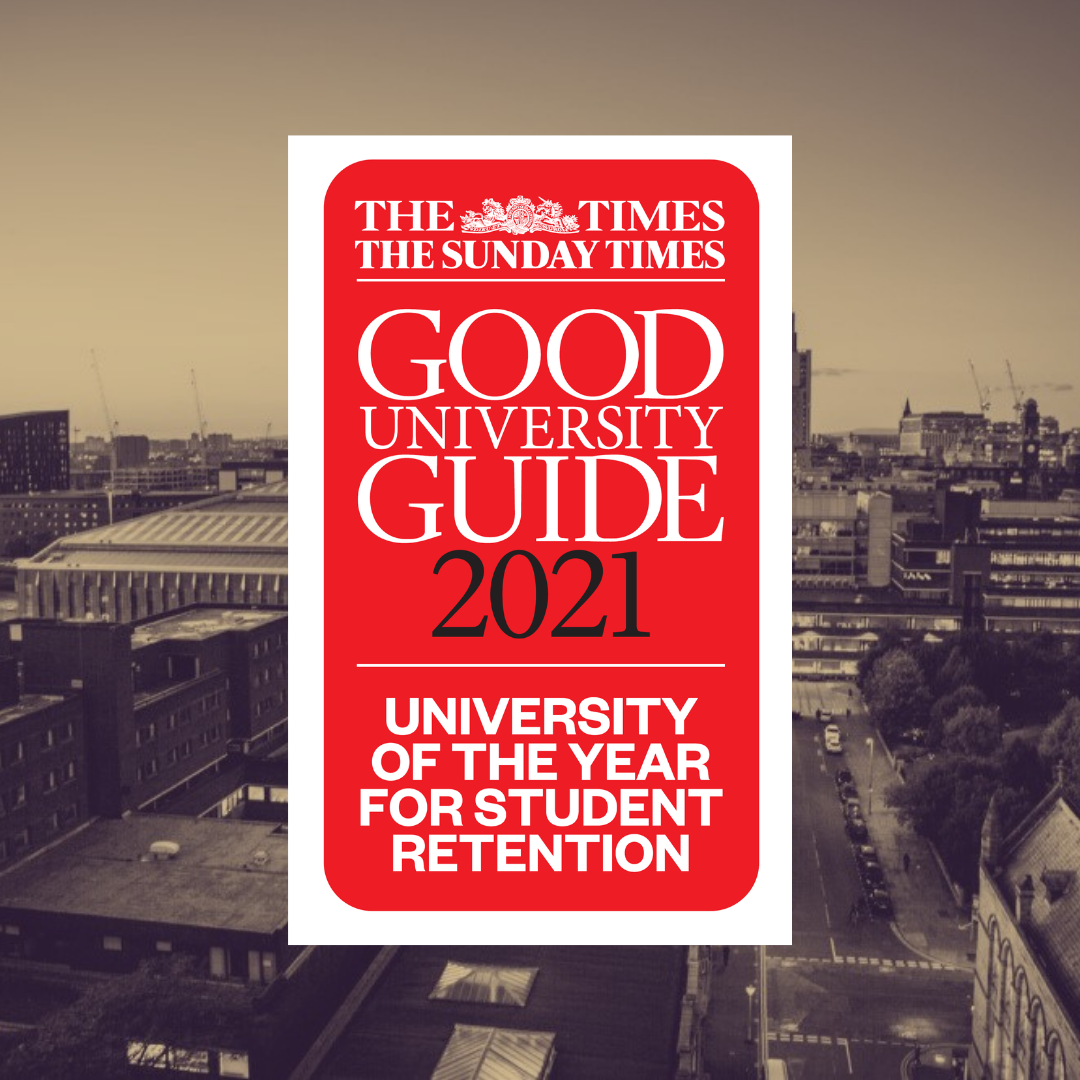
Manchester Metropolitan University has been named The Sunday Times University of the Year for Student Retention.
The award recognises the University’s success in supporting students to achieve their ambition and successfully completing their studies through to graduation.
Manchester Metropolitan has a range of initiatives to ensure its 34,000 students can fulfil their potential while at the University, recognising there is no one-size-fits-all approach to supporting students.
Professor Malcolm Press, Vice-Chancellor of Manchester Metropolitan University, said: “I am delighted that this award recognises the commitment and hard work of our students, many of whom are the first in their family to attend university, and the dedicated effort of staff throughout Manchester Metropolitan University to develop and inspire them.
“Every student we retain is someone we can support to realise their dreams and aim for future success. We are already delivering new, innovative programmes that I METNEWS University named as best for student retention am confident will ensure we build on this performance to see even more students succeed and prosper in future.”
Alastair McCall, editor of The Sunday Times Good University Guide, added: “Manchester Metropolitan’s success as this year’s University of the Year for Student Retention is unprecedented. It is very hard for large institutions to perform well on degree completion rates, doubly so for socially inclusive ones which by definition admit students with a higher risk of dropping out.
“For Manchester Met to win our award is an acknowledgement of its success in getting hundreds of students each year through to graduation who would have probably dropped out if they studied elsewhere. That is a personal triumph for the students concerned and a significant financial achievement in avoiding the wasting of money by the government and students alike that goes hand in hand with a student dropping out.”
The University focuses on supporting students around several important factors that influence retention and progression, but crucially they will help to influence the life-long success and wellbeing of students.
This includes the development of a Peer Assisted Learning scheme to support academic achievement and collaborative working, improved support for mental health and wellbeing, and the tracking of attendance and engagement to identify students if they start to struggle and to then offer appropriate help.
Success at Guardian University Awards

Manchester Metropolitan’s innovative Rise programme to help students develop new skills through extra opportunities to learn, work and travel has won a Guardian University Award.
The University’s Rise scheme – initially known as the Third Term Programme – was crowned the winner of the Course Design, Retention and Student Outcomes award for 2020.
The other shortlisted entry for Manchester Met, the Manchester Fuel Cell Innovation Centre, finished as runner-up in the Business Collaboration category.
Rise is a University-wide initiative that allows students greater flexibility in their studies and helps to broaden learning. Students can develop transferable skills through opportunities such as volunteering abroad, gaining work experience, or learning a new language, alongside their usual degree.
The Guardian awards are one of the university sector’s most prestigious, recognising excellence and innovation across higher education.
Speaking about Rise, the judges reflected on how students may secure jobs after graduation through their extra skills and experiences outside of their degree.
Dr Mark Peace, Academic Lead for Rise, said: “The award recognises the innovative ways in which Manchester Metropolitan supports students to achieve their potential. Whether learning a new language or taking part in volunteering opportunities abroad, Rise provides a wealth of opportunities for students, helping to boost their success and employability.”
Rise has gone from strength to strength since its launch in 2018 and will now see more than 3,000 students take part each year.
Also shortlisted for this year’s awards was the University’s Manchester Fuel Cell Innovation Centre (MFCIC) in the Business Collaboration category.
MFCIC is a cutting-edge hub that brings the latest thinking and research in clean energy and fuel cell technology in contact with businesses.
The centre is a state-of-the-art laboratory environment where fuel cells can be tested, and emission-free hydrogen generated. Hydrogen fuel cells are already starting to play a major role in the economy, powering some buses, trains and buildings.
Writing School lecturer scoops Costa Book of the Year
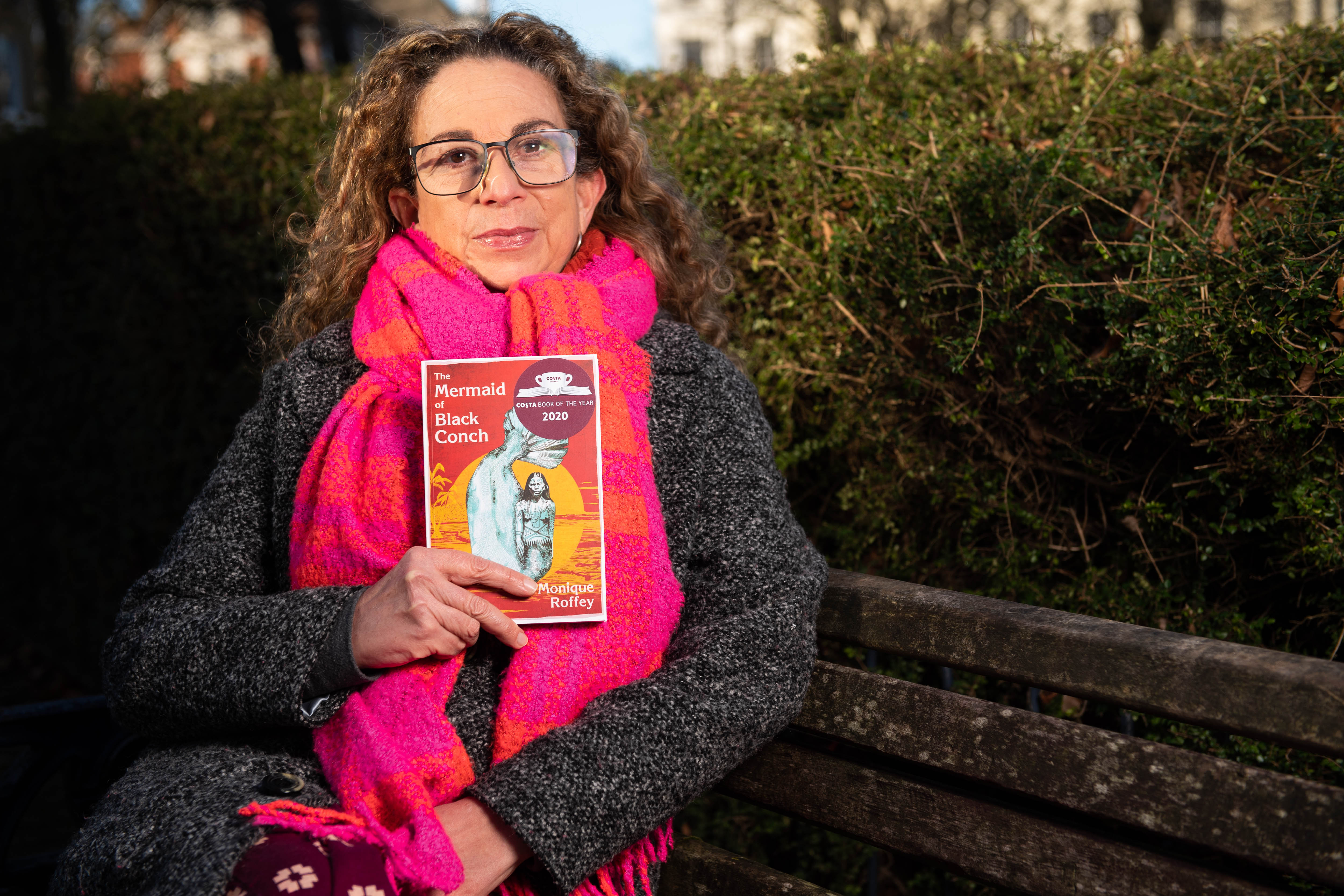
Author and lecturer Dr Monique Roffey (pictured) has won the Costa Book of the Year – one of the most prestigious awards in British literature.
Already named best novel, Roffey’s The Mermaid of Black Conch has now scooped the overall £30,000 prize.
Her novel, a dark love story between a fisherman and a mermaid torn from the sea based on a Neo-Taino legend, was described by judges as “a classic in the making from a writer at the height of her powers”.
Joining esteemed past winners including Seamus Heaney, Hillary Mantel and Kazuo Ishiguro, Roffey is the 13th novelist – and the first since Sebastian Barry in 2016 – to win the overall Costa Book of the Year, a prize rivalled only by the Booker in terms of its outstanding literary prestige.
Dr Roffey, Senior Lecturer in Creative Writing at the Manchester Writing School, Manchester Metropolitan University, said: “The Costa Book of the Year Award is a prestigious prize to win with a wide reach in the world of books and so I’m utterly thrilled to win it.
“This is a vote for so many things: indie presses, Caribbean literature, magical realism and of course mermaids. Myself and Leeds-based indie legendary publisher Peepal Tree Press are utterly delighted.”
The Costa Book of the Year judging panel was chaired by historian, author and broadcaster Professor Suzannah Lipscomb, and she said of Roffey’s novel: “It is utterly original – unlike anything we’ve ever read – and feels like a classic in the making from a writer at the height of her powers. It’s a book that will take you to the furthest reaches of your imagination – we found it completely compelling.”
Booker Prize winner Bernardine Evaristo has described Roffey as “a unique talent and most daring and versatile of writers”, while the Sunday Times hailed The Mermaid of Black Conch as “an arresting slice of Caribbean magic realism… Sensuous, beguiling but without whimsy.”
Though the first to win the overall Book of the Year, Roffey is the fifth current member of the Manchester Writing School to win a Costa Award, following Andrew Michael Hurley’s Best First Novel Award in 2015, two-time winners of the Poetry Award Professors Carol Ann Duffy and Michael Symmons Roberts, and Professor Jean Sprackland, who also won the Poetry Award in 2007.
Tech apprentices earning best graduate salaries for sector, analysis shows
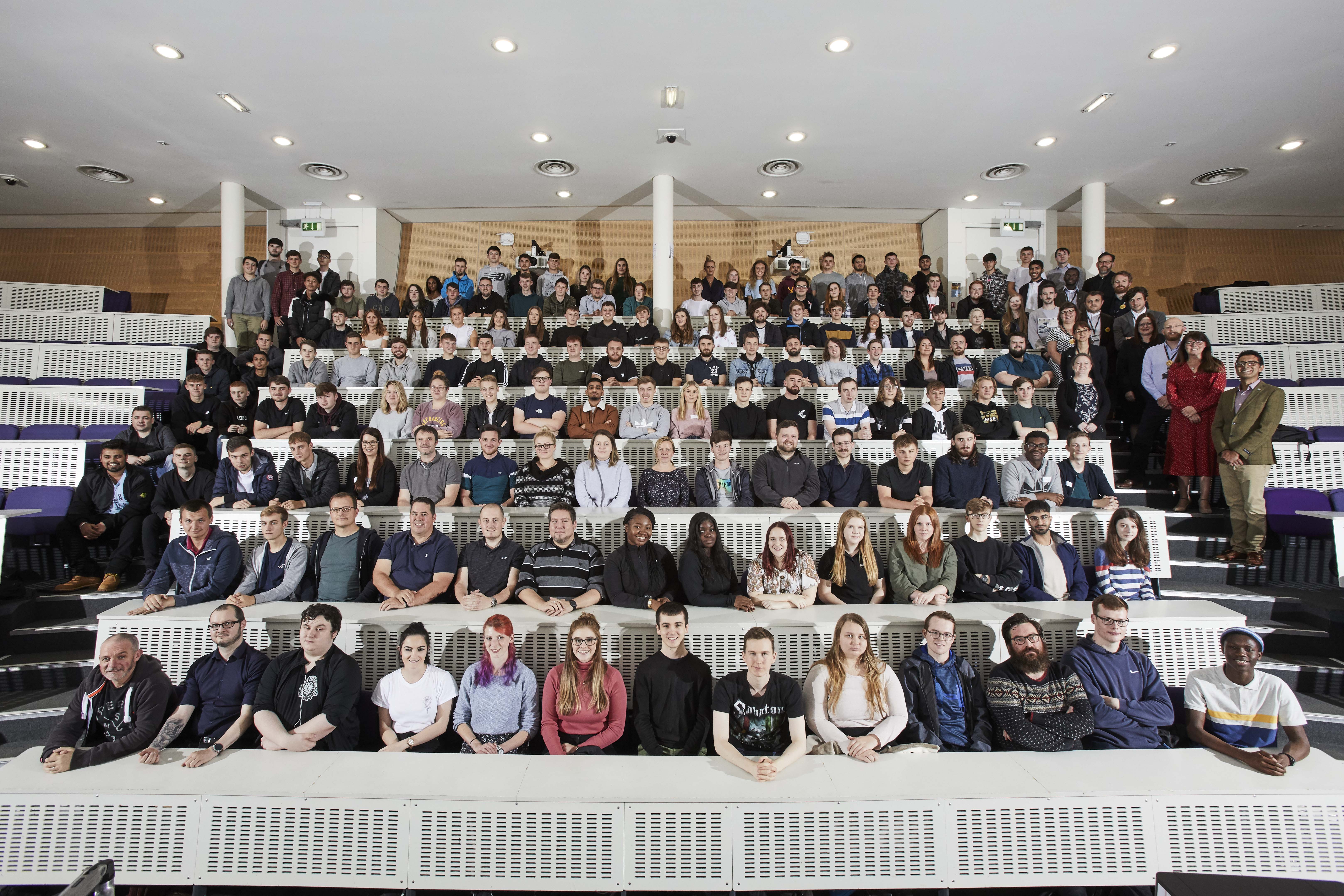
Degree apprenticeship graduates from Manchester Metropolitan University’s Digital and Technology Solutions programme are earning higher annual salaries than graduates from equivalent courses in the UK and universities such as Oxford and Cambridge, new analysis shows.
A review of the current earnings of half of the University’s first cohort of Digital and Technology Solutions apprentices, who graduated in 2019, shows that degree apprenticeships can level-up the life chances of disadvantaged young people and provide access to some of the highest paid jobs.
The group of Manchester Metropolitan Degree Apprenticeship graduates are earning an average annual salary of £39,000 one year after graduating. This is 46% (£18,000) higher than the average UK computing graduate and 5% (£2,000) higher than graduates from the top five computing courses in the UK.
The levelling-up of life chances provided by degree apprenticeships is also evidenced by young people from deprived areas – defined in the English indices of deprivation – making up 25% of all Manchester Metropolitan’s current degree apprenticeship cohorts, which is significantly higher than the national average of 6% reported by the Sutton Trust.
In addition, 34% of current STEM apprentices are women, a substantial improvement on the national average of 22% reported by the Office for Students.
Liz Gorb, Director of Apprenticeships at Manchester Metropolitan University, said: “Degree apprenticeship programmes offer a valuable route for young and disadvantaged people, which will be particularly vital as the UK recovers from the Coronavirus pandemic.
“Our first graduates are accessing some highly paid jobs and rivalling those from the top ranked universities, highlighting the exceptional quality of our employer partners, the teaching and the apprentices on our programmes.”
The number of degree apprenticeships has grown rapidly in recent years, from 756 in 2015/16 to 13,587 in 2018/19. They offer a powerful combination of academic learning and on-the-job training, giving young people the opportunity to ‘earn while you learn’. For more information on degree apprenticeships at Manchester Metropolitan, or for more details on how to apply for an apprenticeship, visit mmu.ac.uk/apprenticeships.
Campus construction projects underway

Construction is well underway on three projects to further enhance the University’s worldclass campus in Manchester.
Work began in January on the new home for the University’s Faculty of Science and Engineering and the refurbishment of its existing John Dalton complex.
The build is the largest construction project the University has ever undertaken, with work on the new building and refurbishment taking place simultaneously on the site on Chester Street.
The first phase started this year with the demolition of John Dalton West and the start of refurbishment on John Dalton Tower.
The new construction will create new facilities for research and lab spaces; deliver enhanced STEM education in collaborative working spaces; bring together different departments into a high-tech ‘super-lab’, deliver world-class modern facilities to support the University’s global ambitions and local partnerships, and enhance students’ learning.
Construction work is also well advanced to create the cornerstone of the Manchester Metropolitan University Institute of Sport and the School of Digital Arts (SODA).
The refurbishment of the University building at 99 Oxford Road in Manchester city centre will deliver a new home for the Department of Sport and Exercise Sciences, the keystone of the Manchester Metropolitan University Institute of Sport (pictured).
The Institute, which will open in early 2022 and aims to be an international centre of excellence, brings together world-leading researchers in musculoskeletal science from the Faculty of Science and Engineering, sports business and community impact experts from the Faculty of Business and Law, and a range of experts from the Faculty of Health, Psychology and Social Care.
SODA, which will open in September 2021, represents a £35m investment into workspaces, networks, teaching and research, and will address the urgent and growing demand for skilled workers in the region’s creative and digital industries. It will offer courses in media production, film, sound, photography, animation, artificial intelligence (AI) and games design.
The five-storey SODA building is located at the heart of the All Saints Campus, on Higher Chatham Street, adjacent to Manchester School of Art in the Benzie Building and the Salutation pub.
New Arts and Humanities building wins trio of awards
The University’s new Grosvenor Building and the scheme’s contractor Morgan Sindall Construction have scooped a trio of awards.
The building, now home to the Faculty of Arts and Humanities, was recognised at the Constructing Excellence North West Regional Construction Awards.
Situated in a prime location on the Oxford Road Corridor, the modern building creates an inspirational venue for training the next generation of actors, writers, journalists and linguists.
Its trio of awards included the Sub-Regional Project of the Year for Manchester and then went through to the Overall North West Project of the Year category as a result, where it was highly commended. Judges were impressed by the unique achievements of the design and build team, including the retention of the Grade II listed portico of the Grosvenor building, and the undertaking of a complex construction project within the confines of a live campus and city centre environment.
The University was then awarded Client of The Year and was praised for its collaborative approach in making the building project a success.
The final project win was the Digital Construction Project of the Year award. This recognised the use of cutting-edge technology that delivered a fully collaborative design process and helped to optimise logistics and buildability, enhance health, safety and quality while also reducing waste.
The new Grosvenor building will be home to the Manchester Poetry Library alongside the prestigious Manchester Writing School – led by Creative Director Professor Carol Ann Duffy DBE – as well as a 180-seat auditorium for Manchester School of Theatre productions, the multimedia journalism programme with inhouse TV and radio studios, and the Language Centre.
University research partnership named best in class
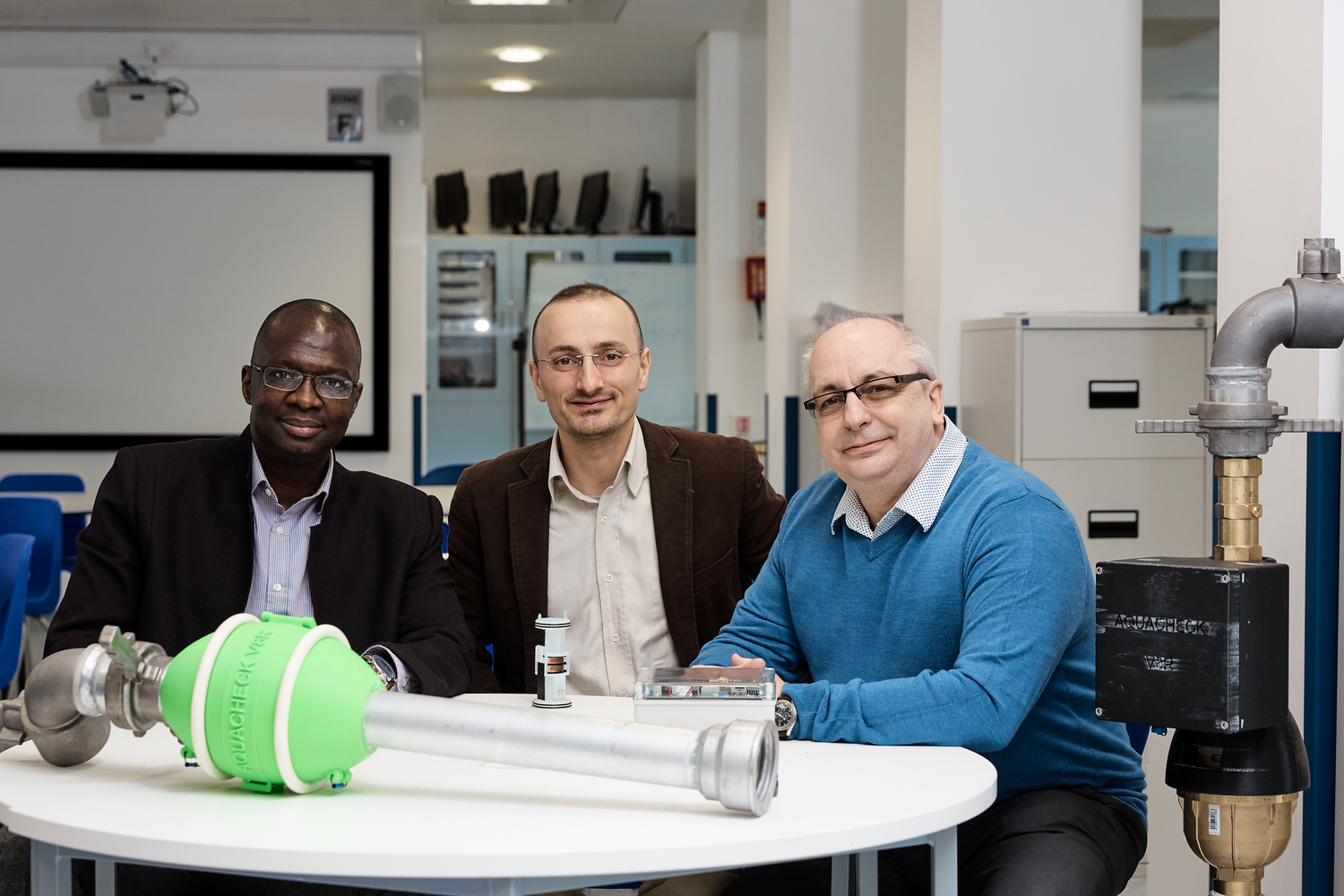
A collaboration between Manchester Metropolitan University and a local manufacturer to develop a smart mobile water metering device has won a top award for university-industry projects.
The KTP Best of the Best Awards 2020 celebrate Knowledge Transfer Partnerships (KTPs), which are a scheme that helps businesses in the UK to innovate and grow by linking them with an academic or research organisation, such as the University, and a graduate who is embedded in the company as a KTP Associate.
A KTP between the University and Aquacheck Engineering, a company based in Rochdale, Greater Manchester, was named Best Knowledge Transfer Partnership during the virtual awards ceremony hosted by KTN, which connects innovators with new partners and opportunities.
The judges said: “This KTP has revolutionised the traditional standpipe – something we all rely on for our water supply – by turning it into a smart, connected device, which delivers invaluable insight into water usage.
“The judges felt this KTP had not only created a state-of-the-art device, but had also been utterly transformative for the business, truly benefited all three partners, and led to the development of new capabilities. It does everything a KTP sets out to do.”
The project, led by academic Bamidele Adebisi, Professor of Intelligent Infrastructure Systems at Manchester Metropolitan University and with Dario Chiantello as KTP Associate, began in 2016 and finished in 2019.
It involved drawing on the University’s expertise in electronic engineering and embedded systems to design and produce a smart water standpipe that utility companies can use to remotely monitor water use.
Professor Richard Greene, Pro-Vice-Chancellor for Research and Knowledge Exchange at Manchester Metropolitan University, said: “The award recognises that by working together, Professor Adebisi – supported by our knowledge transfer team – the senior management at Aquacheck and our joint KTP Associate Dario Chiantello have translated high-quality research into new products that have generated significant social and economic impact. We are proud of them for having done so.
“This kind of highly successful collaboration is why Manchester Metropolitan is one of the leading universities in the country for hosting KTPs across Science and Engineering, Health, Education and Sociology.”
New low carbon hydrogen hub to be developed

A new partnership aims to support ambitions for Greater Manchester to become the first Net Zero region in the world by 2040, with the planned installation of the city’s first low-carbon hydrogen hub.
For the first time, sustainable hydrogen fuel will be produced at scale in the region, creating opportunities for businesses in the area to make Net Zero plans with hydrogen in mind.
The collaboration comes after the UK Government set out its 10-point plan for a green revolution and included hydrogen and fuel cell technology as one of its key ambitions.
Manchester Metropolitan University, Greater Manchester Combined Authority (GMCA), Trafford Council, Carlton Power, Cadent Gas and Electricity North West will be joining forces to set up the hub, which will be a new addition to Trafford Low Carbon Energy Park – a green energy storage facility, which already consists of a number of Net Zero industrial projects in support of UK Government objectives.
Trafford Low Carbon Energy Park, which has been developed and is owned by Carlton Power, is the first of its kind in the UK and includes one of Europe’s largest energy storage facilities based on liquid air storage.
The facility aims to help integrate renewable energy on a regional scale through the storage of solar and wind energy, and now through the production and storage of hydrogen.
Amer Gaffar, Director of the Manchester Fuel Cell Innovation Centre, said: “We will be offering businesses the opportunity to connect with leading researchers at the University as well as experts from this exciting new micro-cluster at Trafford Low Carbon Energy Park, in order to fully maximise the potential for hydrogen in their business.”
The consortium, which has signed a Memorandum of Understanding, will combine its expertise in industry, research, policy, skills and innovation to develop a solution for low carbon hydrogen production and storage, with the potential for the hub to be used by industry, for vehicle refuelling and residential heating.
Manchester Metropolitan University’s Fuel Cell Innovation Centre – a £4 million facility dedicated to the development of renewable energy through research in hydrogen and fuel cell technology – will be helping to develop the skills and supply chains associated with the project and bring the research expertise required to maximise the potential of the new development.
Net Zero involves achieving a balance between the amount of greenhouse gas emissions produced and removing the equivalent amount of greenhouse gases from the atmosphere.
3D printing initiative to help companies build back better
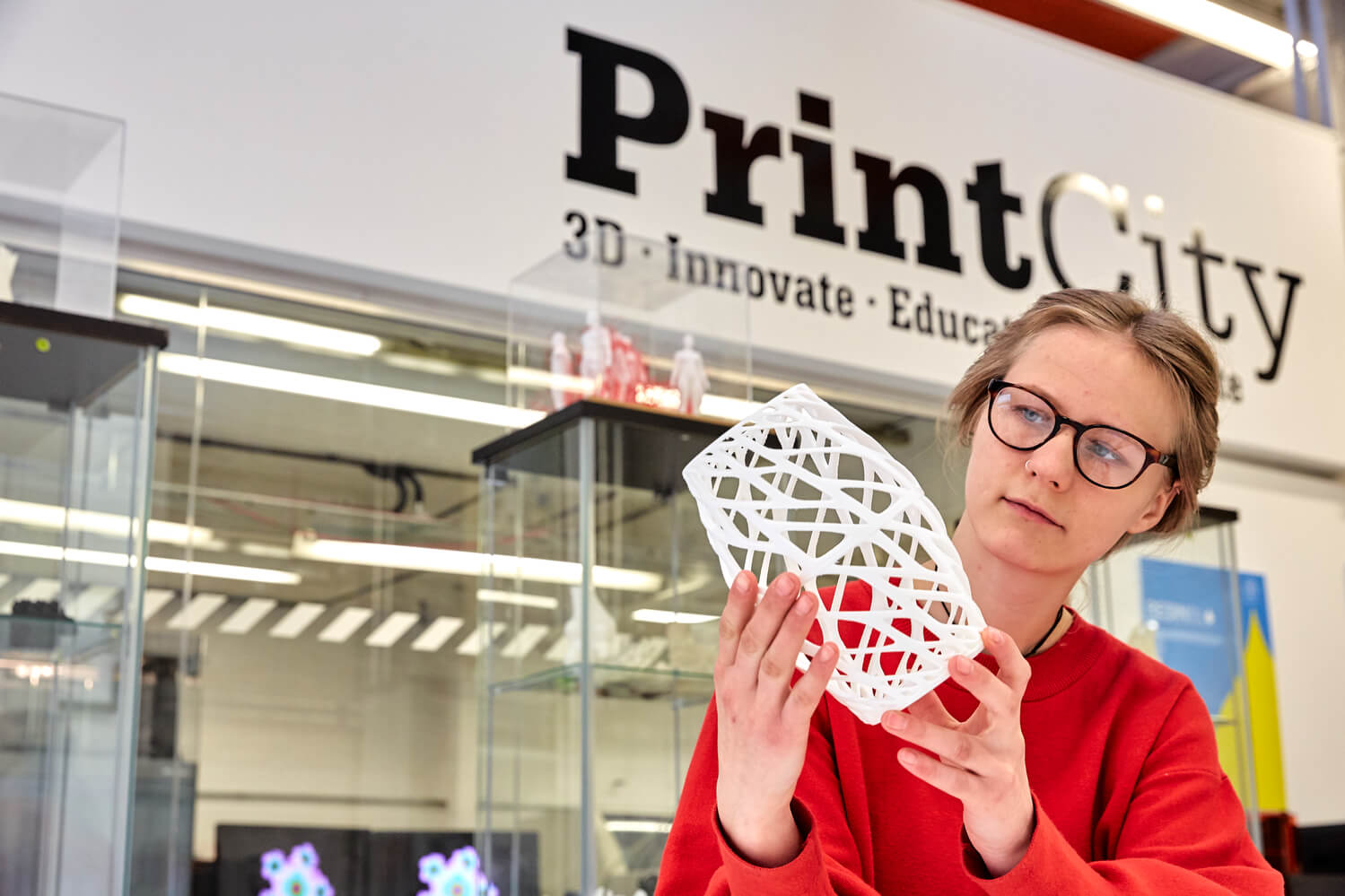
Greater Manchester businesses are to benefit from a new initiative that will help them understand and utilise 3D printing technology to develop innovative products and services within their business.
The new £3.2 million initiative from Manchester Metropolitan University aims to help small and medium-sized enterprises (SMEs) in the region not only continue operating through the pandemic, but also build back better post-pandemic, by supporting them in adopting a new innovation-led culture that will encourage productivity and growth.
Many businesses have already benefited from the University’s 3D-printing support, designing new products such as deaf-friendly face masks.
But the COVID-19 pandemic continues to cause enormous disruption to businesses across the region, with sectors such as manufacturing being no exception.
From experiencing issues with supply chains, which has made manufacturing products more difficult, to seeing a change in market conditions over the past 12 months – many businesses have been forced to adapt to remain operational.
But the initiative, PrintCity Network, which launches this month, will give companies the opportunity to use 3D scanning as a stop gap in the supply chain, allowing a business to remain operational when the chain is disrupted.
SMEs will also be able to diversify their product ranges and bring new products to the market quickly using 3D printing and digital manufacturing techniques.
British Ambassador opens Wuhan office
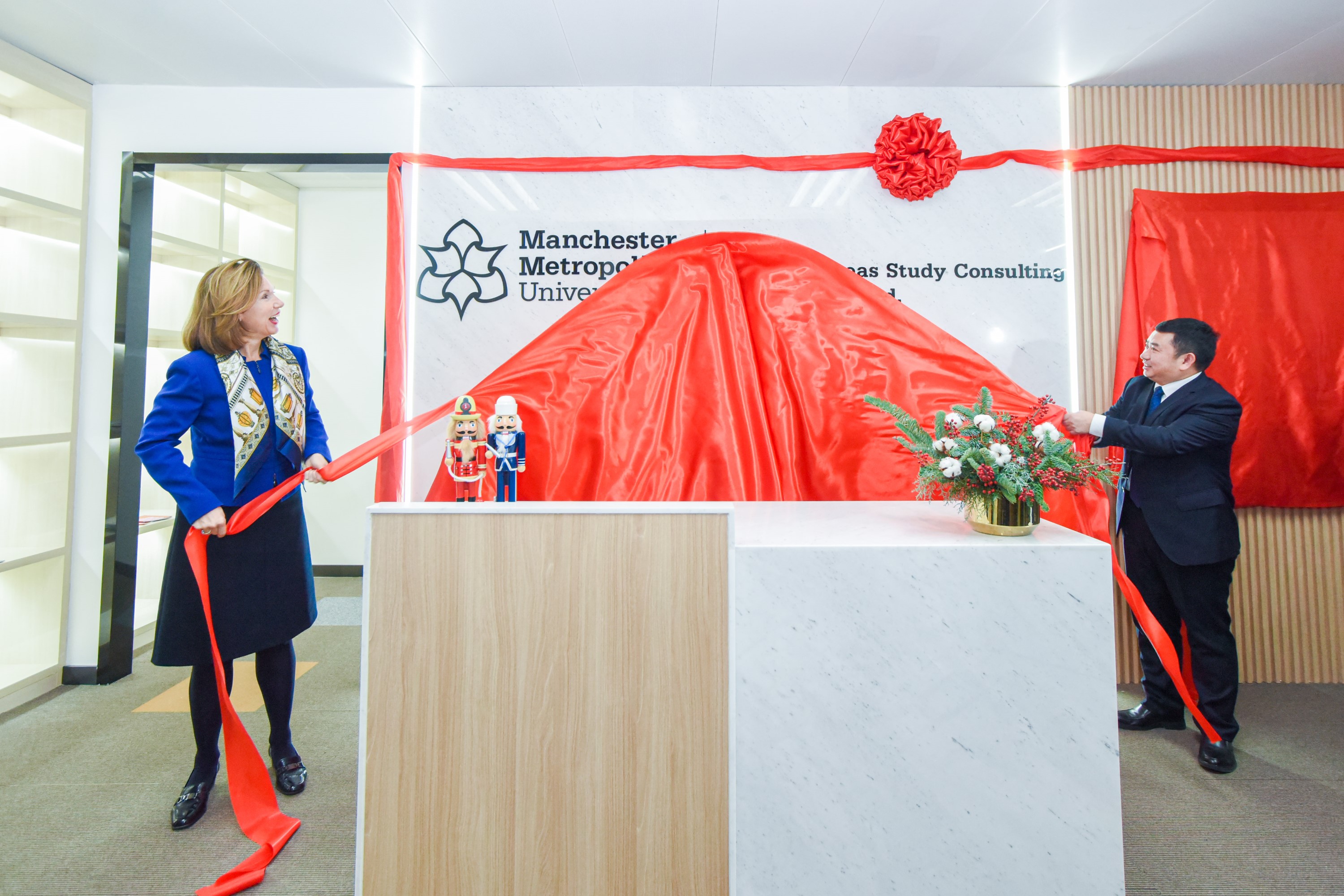
Manchester Metropolitan University’s new office premises in Wuhan has been officially opened by the British Ambassador to China.
The new premises were declared open for business by Caroline Wilson at a ceremony attended by local dignitaries, Manchester Metropolitan staff, and other senior representatives from the UK Foreign, Commonwealth & Development Office on Tuesday 15 December 2020.
Operating through MMU Overseas Study Consulting (Wuhan) Co. Ltd, Wuhan has been home to Manchester Metropolitan University’s regional headquarters since June 2019. The office is part of a plan to further enhance Manchester Metropolitan’s close ties with China, increasing the University’s activity in the country and promoting study opportunities in Manchester.
Professor Malcolm Press, Vice-Chancellor of Manchester Metropolitan, said: “Manchester Metropolitan University has a strong and growing relationship with China, and partnerships with institutions across the country. However, our focus is on the tremendous opportunities in Wuhan. With the launch of our new Joint Institute with Hubei University in 2021, and the development of new links elsewhere, we will strengthen our academic relationships, and we look forward to the new opportunities that will blossom from our greater presence in the city.”
University ranked in top tier in sustainability report
Manchester Metropolitan has been rated as one of the most renewable energy friendly universities in the UK, according to a new survey.
The Uswitch Renewable University Report 2020 found that Manchester Metropolitan was one of the top universities that was committed to using renewable energy and taking steps to reduce its footprint and impact on the environment.
It continues the University’s successes as a leading university for sustainability – not only winning awards for its initiatives and performance but also ranking in the top three of the People and Planet University League for the past eight years.
Evidence shows that energy consumption is a major factor in climate change and by making changes to its business activities, the University is reducing its energy consumption and cutting carbon emissions as it moves towards a zero-carbon target of 2038.
The University has already made good progress towards its ambitions, having reduced its carbon emissions¹ by 61.7% since 2005/6. This exceeds the University’s 2020/21 target of a 50% reduction. Although the COVID-19 national lockdown may have had an impact on the figures, the University was on track to exceed the target a year early.
The report recognised Manchester Metropolitan for a range of achievements, including its renewable installations, such as: solar panels, battery storage, borehole cooling, solar thermal system, and air source heat pump.
The University was the only survey respondent to feature borehole cooling, which is a renewable energy source that uses groundwater to cool buildings.
Manchester Metropolitan University’s Energy Manager, Callum Donnelly said: “I am delighted that the University’s commitment to renewable energy has been recognised. Creating a university campus that is energy and operationally efficient is key to achieving our ambitious targets and improving our performance.”
